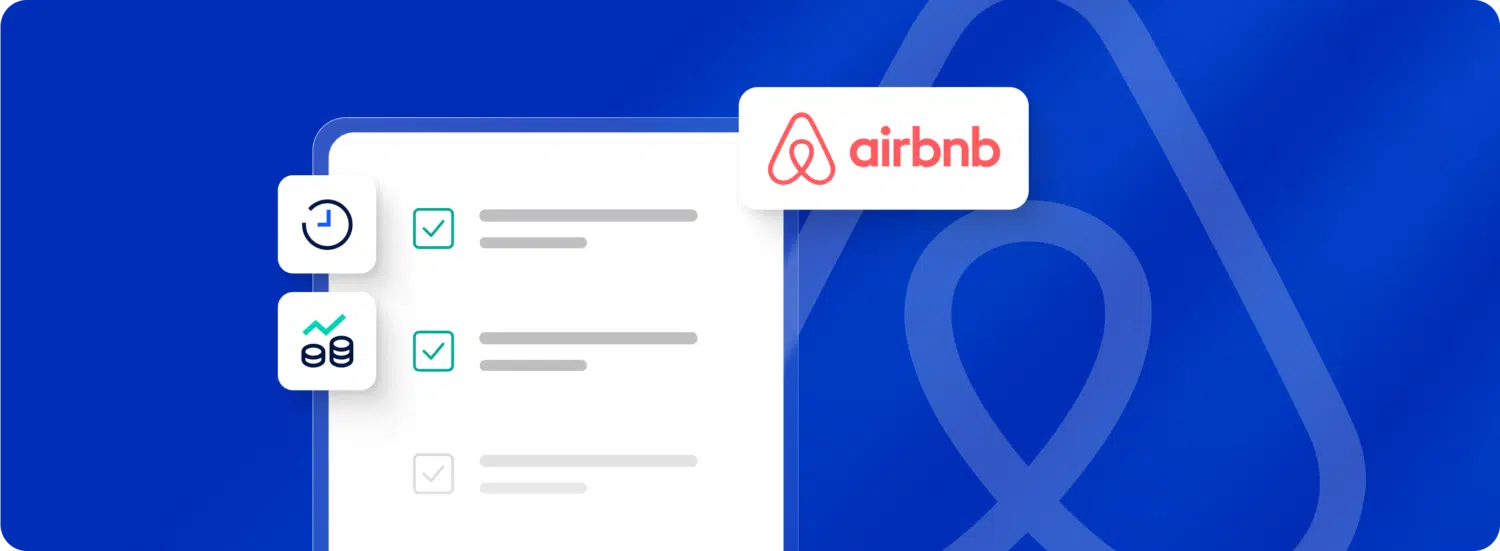Being a short-term rental host tends to be a strain on two things that are generally hard to come by – time and money. To be successful as a host, it’s critical to be resourceful, to understand the challenges that come along with managing short-term rentals, and to find ways to provide terrific service without sacrificing the quality of the guest experience.
To help you get started, here are a few ways you can save time and money as an Airbnb host.
- Take advantage of property management software
One of the most valuable tools for short-term rental hosts is an online all-in-one property management software (PMS). Hosting management solutions like Guesty allow you to automatically communicate with guests, manage your cleaning tasks and schedule, track your finances and much more— all in one, easy-to-access place.
Some PMS tools, such as Guesty, also integrate seamlessly with your Airbnb and Booking.com accounts, automatically populating reservation details into a unified calendar, which is one less step to manage manually. A unified calendar will also eliminate the chance of double bookings, which can be a source of bad reviews and penalties from Airbnb.

- Know the ins and outs of your budget
This may seem obvious, but to save money, you need to have a clear picture of what you’re spending each month on your short-term rentals.
There are many options for quick and easy budgeting programs, but you may want to choose a PMS that includes financial reporting to synchronize all of your short-term rental management within one platform. For example, another of Guesty’s features is financial reporting which allows you to create and share detailed financial reports to oversee all your financial data in one place. You can use this data to track expenses and see where overspending may be happening.
This feature allows you to track your revenue and payments with detailed price breakdowns, manage fees, create homeowner reports and invoices, and more. With this information, you can create a budget that is both realistic and effective for your short-term rental business. With a handle on your finances, you’ll feel less stressed and still be able to make guests happy and comfortable.
- Re-evaluate your contractors
Who do you call when the pipes burst or there’s an electrical issue? Don’t fall into the trap of using the one contractor you’ve worked with just because you know them and you’ve worked with them for years. Instead, save money by getting quotes from at least three different vendors or contractors.
This can be something that can end up being time-consuming, so when you have a particular job that isn’t urgent, take the opportunity to compare new and current professionals. To stay up to date, you may want to check in on pricing periodically, between every 6 months to a year. You may be surprised at how much you can save on your short-term rentals by simply doing a little extra research or negotiations.

- Maintain your property regularly
Letting small maintenance issues fall by the wayside is easy when you’re busy and looking to save on expenses, but it can lead to bigger headaches if ignored for too long. By getting organized and planning ahead, you can keep a schedule for maintenance and avoid major issues that build up over time.
To reduce the stress of these tasks, property management software can help you streamline this process. If you are using a PMS with a vacation rental cleaning and maintenance checklist and management feature you can schedule tasks and add important dates to your short-term rental calendar, so you’ll know when it is time for maintenance and checks. A good idea is to prioritize regular maintenance every spring and fall to stay on top of small issues.
Ultimately, failing to stay on top of this can result in costly repairs that are more expensive than the maintenance itself—or worse, that could leave your short-term rental vacant. Once you have trusted contractors in place, consult with them about a recommended maintenance schedule, add it to your online calendar, and focus on other pressing issues.
- Go green
If you haven’t had a home energy assessment (also known as an energy audit) on your property, now is the perfect time to do it. An energy audit is a simple process that can save you money while reducing your carbon footprint—which is also attractive to potential renters. You can set up a professional audit (which is preferred), or do a quick home assessment to see how your home will fare. While a professional energy audit will provide you with a much more comprehensive picture of your property’s energy use, a thorough self-assessment can be a starting point to pinpoint some specific problem areas and enable you to prioritize your most important energy efficiency upgrades.
To set up an audit, contact your energy provider, such as the local electric company, and ask them to do an audit on your property. Make the suggested changes they provide, and you should start to see a drop in your utility expenses. Some companies even offer discounts for energy-efficient homes, which can cut costs as well.

Make hosting quicker, easier, and cheaper
Being an Airbnb host has its share of challenges, but streamlining tasks can help save time while staying on top of repairs and maintenance will save money. If you are interested in seeing firsthand how Guesty can help you with these efforts, take advantage of our free 14-day trial for GuestyLite. Click here to begin!




